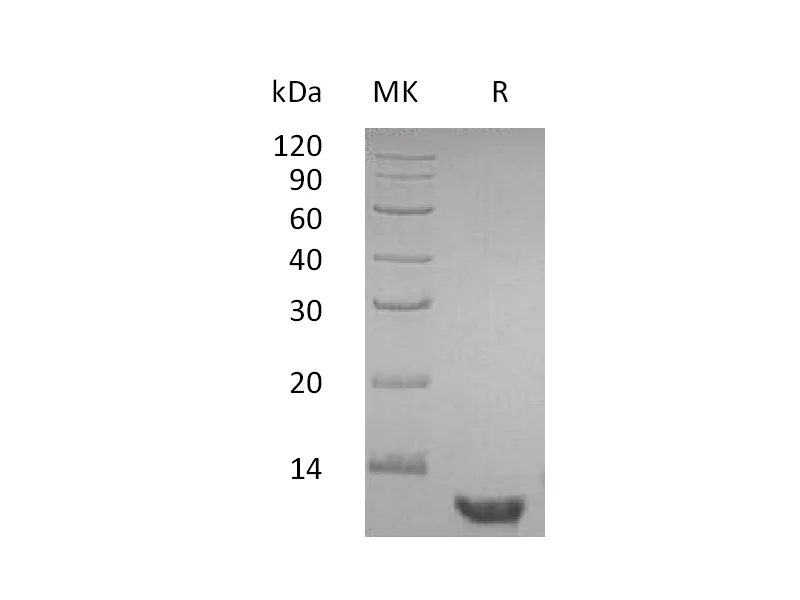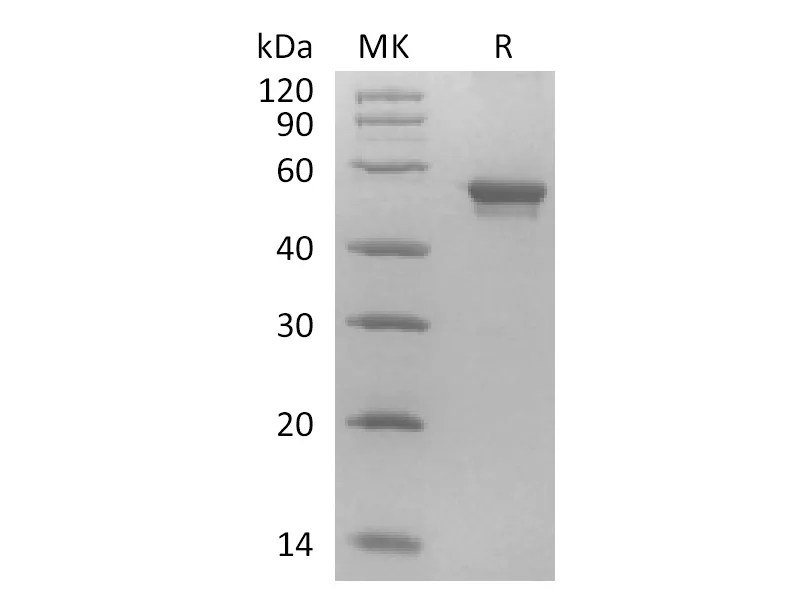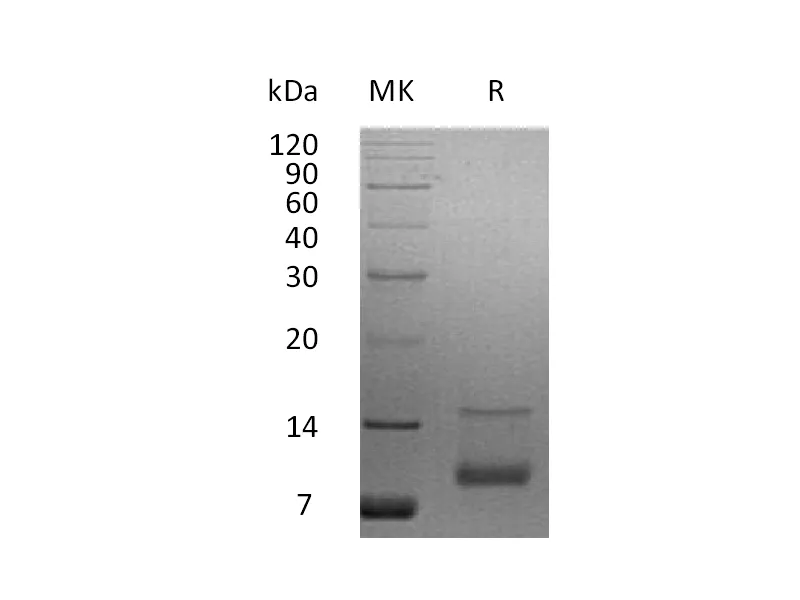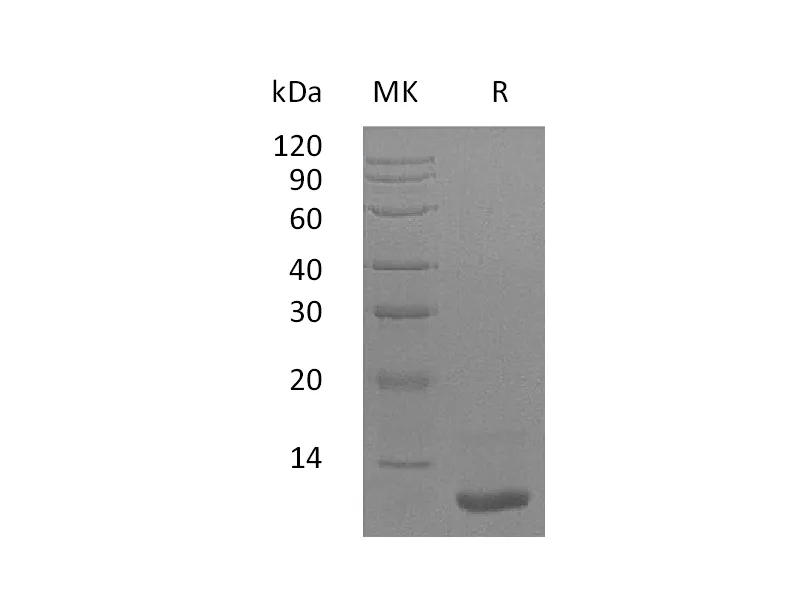| 产品名称 |
Recombinant Mouse CCL2 |
| 英文名称 |
CCL2/MCP-1/C-C motif chemokine 2 |
| 纯度 |
Greater than 95% as determined by reducing SDS-PAGE |
| 内毒素 |
<0.01 EU/µg as determined by LAL test. |
| 蛋白构建 |
Recombinant Mouse C-C Motif Chemokine 2 is produced by our E.coli expression system and the target gene encoding Gln24-Arg96 is expressed. |
| Accession |
P10148 |
| 表达宿主 |
E.coli |
| 种属 |
Mouse |
| 预测分子量 |
8.5 KDa |
| 制剂 |
Lyophilized from a 0.2 μm filtered solution of PBS, pH 7.4. |
| 运输方式 |
The product is shipped at ambient temperature.Upon receipt, store it immediately at the temperature listed below. |
| 稳定性&储存 |
Lyophilized protein should be stored at ≤ -20°C, stable for one year after receipt.Reconstituted protein solution can be stored at 2-8°C for 2-7 days.Aliquots of reconstituted samples are stable at ≤ -20°C for 3 months. |
| 复溶 |
Always centrifuge tubes before opening.Do not mix by vortex or pipetting.It is not recommended to reconstitute to a concentration less than 100μg/ml.Dissolve the lyophilized protein in distilled water.Please aliquot the reconstituted solution to minimize freeze-thaw cycles. |
| 分子别名 |
| C-C motif chemokine 2; Monocyte chemoattractant protein 1; Monocyte chemotactic protein 1; MCP-1;Platelet-derived growth factor-inducible protein JE; Small-inducible cytokine A2; Ccl2; Je; Mcp1; Scya2 |
| 背景介绍 |
| C-C motif chemokine 2 (CCL2) is a member of the C-C or β chemokine family. Mouse CCL2 shares 82% amino acid (aa) identity with rat CCL2 over the entire sequence, and 58%, 56%, 55%, 53% and 53% aa identity with human, equine, porcine, bovine and canine CCL2, respectively. Fibroblasts, glioma cells, smooth muscle cells, endothelial cells, lymphocytes and mononuclear phagocytes can produce CCL2 either constitutively or upon mitogenic stimulation, but monocytes and macrophages appear to be the major source. In addition to its chemotactic activity, CCL2 induces enzyme and cytokine release by monocytes, NK cells and lymphocytes, and histamine release by basophils that express its receptor, CCR2. Additionally, it promotes Th2 polarization in CD4+ T cells. CCL2-mediated recruitment of monocytes to sites of inflammation is proposed to play a role in the pathology of atherosclerosis, multiple sclerosis and allergic asthma. |
注意事项
本司产品仅用于科研,不用于临床诊断和治疗




